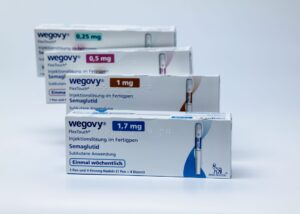Food plays a key role in how well you perform during exercise and how your body recovers afterwards, but timing your meals can sometimes feel confusing. Here, we look at what happens when you eat before versus after a workout, how different foods support your training and how best to fuel your body depending on the exercise.
Key points:
- Eating before exercise can improve energy and performance
- Eating after exercise supports muscle repair and recovery
- The best approach depends on workout length, intensity and how your body feels
How does eating help you with exercise?
The right food helps you exercise by giving you the energy to move, lift, run and focus while providing the nutrients your muscles need to repair.
If you exercise without enough fuel, you might:
- Feel tired more quickly
- Perform at a lower intensity
- Struggle to recover properly
When you eat well, you support strength and endurance.
Eating before exercise (pre-workout meals)
Eating before a workout helps boost your energy levels and prepares the body for physical activity. It can also help you avoid early fatigue and maintain a steady level of effort throughout your session.
How does this affect the body?
During exercise, your body breaks down stored carbohydrates, known as glycogen, into glucose to provide energy for your muscles. This can improve focus and reduce the risk of dizziness or sluggishness during a workout. Protein can also support muscle repair once the workout is finished.
Training on an empty stomach works for some people, but others may feel light-headed or shaky. A small pre-workout snack can prevent that dip and help you exercise at your best.
What you should eat
Aim for foods that are easy to digest and provide steady energy. Good options include:
- Wholegrain toast with peanut butter
- Greek yoghurt with berries
- A banana or apple
- Porridge or oats with honey
- A small smoothie
- Rice cakes with hummus
Try to avoid large or fatty meals right before exercise. They take longer to digest and may lead to cramping or nausea once you start moving.
How long after eating can you exercise?
Most people feel comfortable exercising 1-2 hours after a light meal. If you eat something smaller, such as fruit or yoghurt, you may only need 30 minutes or so. Waiting 2-3 hours after a large meal can help prevent discomfort.
Everyone digests food differently, so you may need to experiment to find what timeline works for you.
Eating after exercise
Eating after exercise helps your body recover, repair muscle tissue, and replace the energy you’ve used during your workout. This is especially important if you train regularly or participate in longer endurance or weight-lifting workouts.
How does this affect the body?
After exercise, your muscles are more sensitive to nutrients and are ready to refuel. The body uses carbohydrates to replace lost energy and protein to repair the muscle fibres stressed during training.
Eating after a workout can also reduce soreness, improve recovery time and help you feel more energised throughout the day. If you skip eating after exercise too often, you may feel more fatigued and experience longer recovery times.
What should you eat?
A balanced post-workout meal combines carbohydrates for energy and protein for repair. Some good options include:
- Chicken, tofu or fish with rice and vegetables
- Eggs on wholegrain toast
- Protein yoghurt with fruit and oats
- A smoothie made with milk, banana and nut butter
Try to include some colour on your plate, as fruit and vegetables provide vitamins and minerals that support general health.
Protein after exercise
Protein provides your muscles with amino acids, the building blocks they need to repair and grow stronger. You don’t necessarily need a huge amount. Most people will recover well with a sensible serving of lean meat, fish or plant-based alternatives. A post-workout snack or meal containing around 20–30 grams of protein is enough for most adults.
How long after exercise should you wait before eating?
Aim to eat within 1–2 hours of finishing your workout if you can. If you can’t plan a full meal in that time, having a quick snack, like a banana and yogurt, can help until you’re able to eat properly.
Which is best?
No single answer works for everyone, as training goals, appetite and exercise duration all play a part. Some people feel stronger with a snack beforehand, while others prefer to eat after. The best approach is the one that helps you perform well and recover fully.
Short duration exercise
For workouts under an hour, such as light cardio or a quick gym session, you may not need to eat beforehand, especially if you’ve already eaten earlier in the day. Instead, prioritise eating afterwards to support muscle repair and energy replacement. Focus on balanced meals containing carbohydrates and protein, especially if you train several times a week.
Long duration exercise
Eating beforehand may be helpful for longer workouts, such as endurance runs or high-intensity classes. A small, balanced meal or snack gives your body the energy to maintain performance for longer and reduces the risk of fatigue. Eating before longer workouts can also prevent hunger during training, which can be distracting and uncomfortable.
Sources:
- What to Eat After a Workout for Nutrition and Muscle Recovery. Healthline. [Accessed 29/10/2025]
- Glycogen. Cleveland Health Clinic. [Accessed 29/10/2025]
- When and What to Eat Before a Workout. Healthline. [Accessed 29/10/2025]
- Should You Eat Before or After Working Out? Healthline. [Accessed 29/10/2025]
- Exercise and Glucose Levels in Diabetes. American Diabetes Association. [Accessed 29/10/2025]
- Benefits of protein. WedMD. [Accessed 29/10/2025]
- Achieving Optimal Post-Exercise Muscle Protein Remodeling in Physically Active Adults through Whole Food Consumption. National Library of Medicine. [Accessed 29/10/2025]








